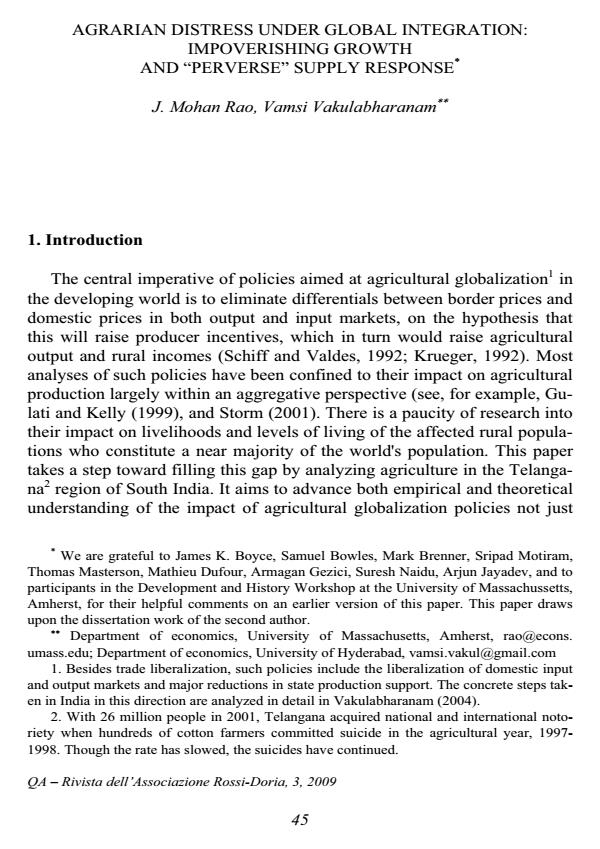Agrarian Distress under Global Integration: Impoverishing Growth and "Perverse" Supply Response
Journal title QA Rivista dell’Associazione Rossi-Doria
Author/s J. Mohan Rao, Vamsi Vakulabharanam
Publishing Year 2009 Issue 2009/3
Language Italian Pages 29 P. 45-73 File size 282 KB
DOI 10.3280/QU2009-003003
DOI is like a bar code for intellectual property: to have more infomation
click here
Below, you can see the article first page
If you want to buy this article in PDF format, you can do it, following the instructions to buy download credits

FrancoAngeli is member of Publishers International Linking Association, Inc (PILA), a not-for-profit association which run the CrossRef service enabling links to and from online scholarly content.
This paper aims to explain theoretically two apparently paradoxical phenomena witnessed in the Telangana region of South India between 1985 and 2000. First, despite the rapid growth of real agricultural output during this period, per-capita consumption of the majority of the agricultural population declined during the 1990s (when agricultural liberalization policies were introduced in India) after steadily rising during the 1980s. Second, non-food crop supply elasticities, which had been positive, turned "perversely" negative during the 1990s. Employing a model of a peasant economy with an effort supply function originally proposed by Leibenstein, we explain the two puzzles in terms of the interplay between the conditions of global integration (falling value-added prices) and the nature of local credit markets and institutions (including the practice of requiring collateral in the form of non-food crops).
J. Mohan Rao, Vamsi Vakulabharanam, Agrarian Distress under Global Integration: Impoverishing Growth and "Perverse" Supply Response in "QA Rivista dell’Associazione Rossi-Doria" 3/2009, pp 45-73, DOI: 10.3280/QU2009-003003